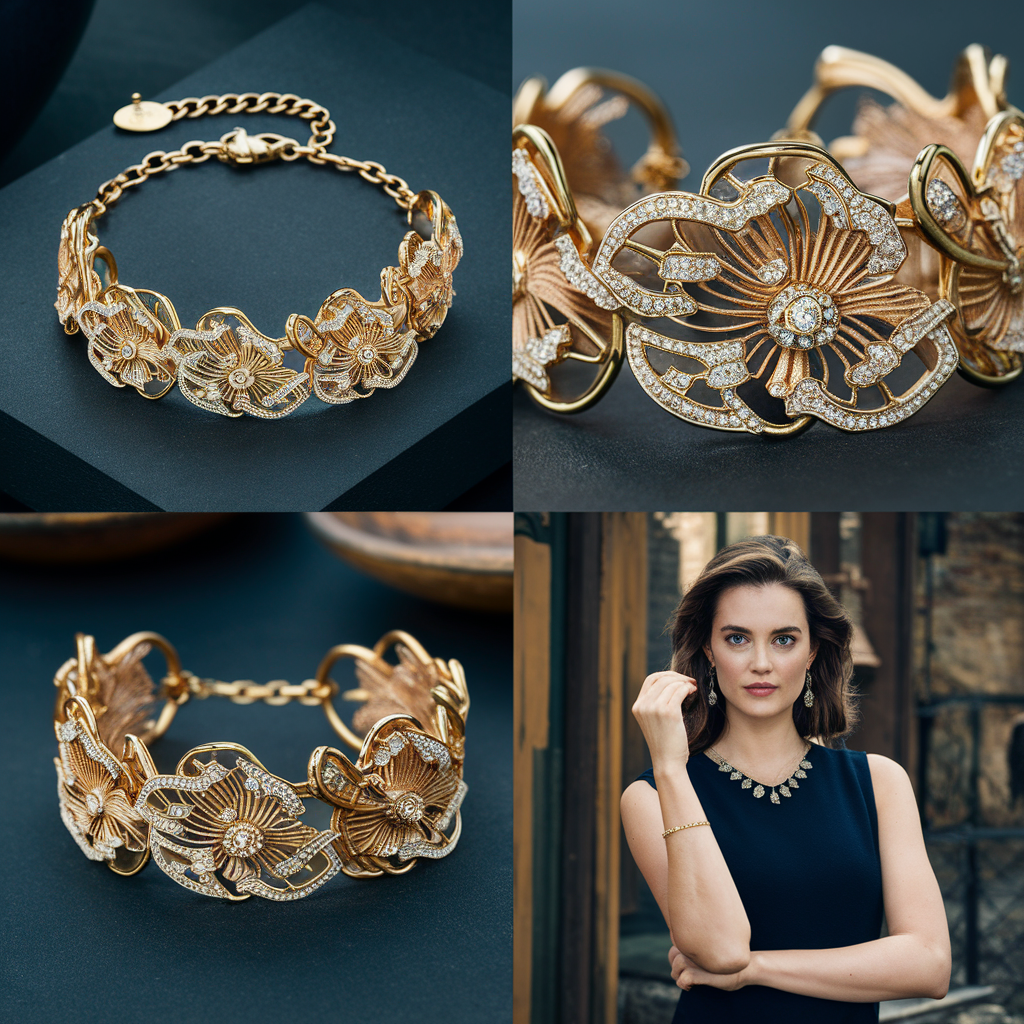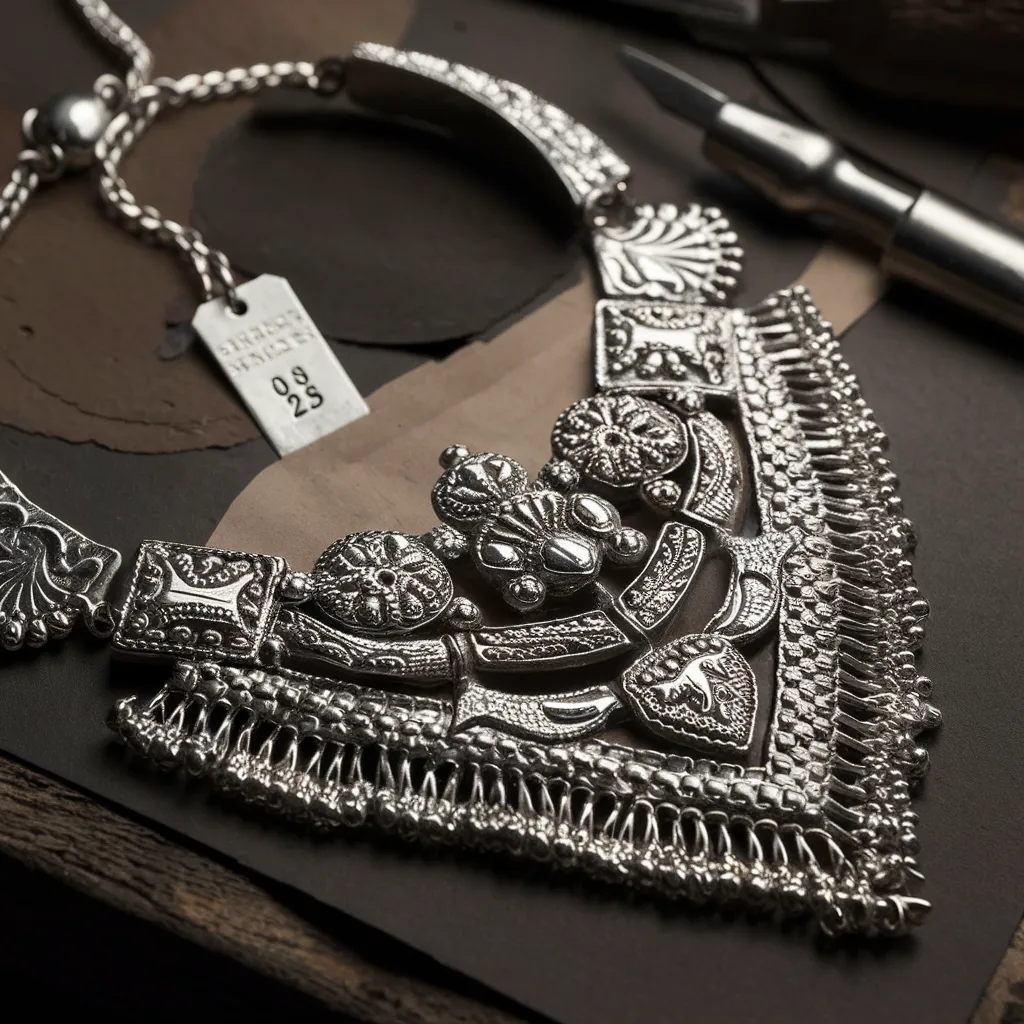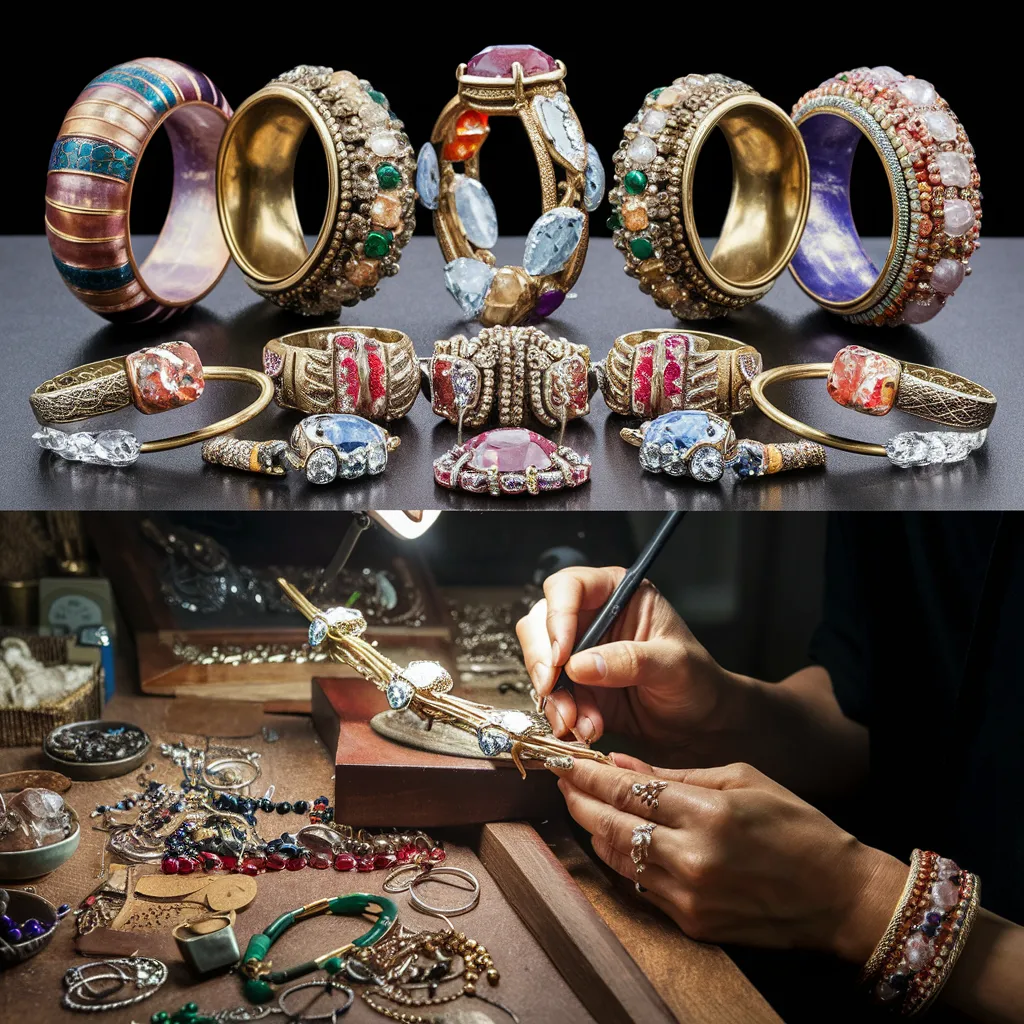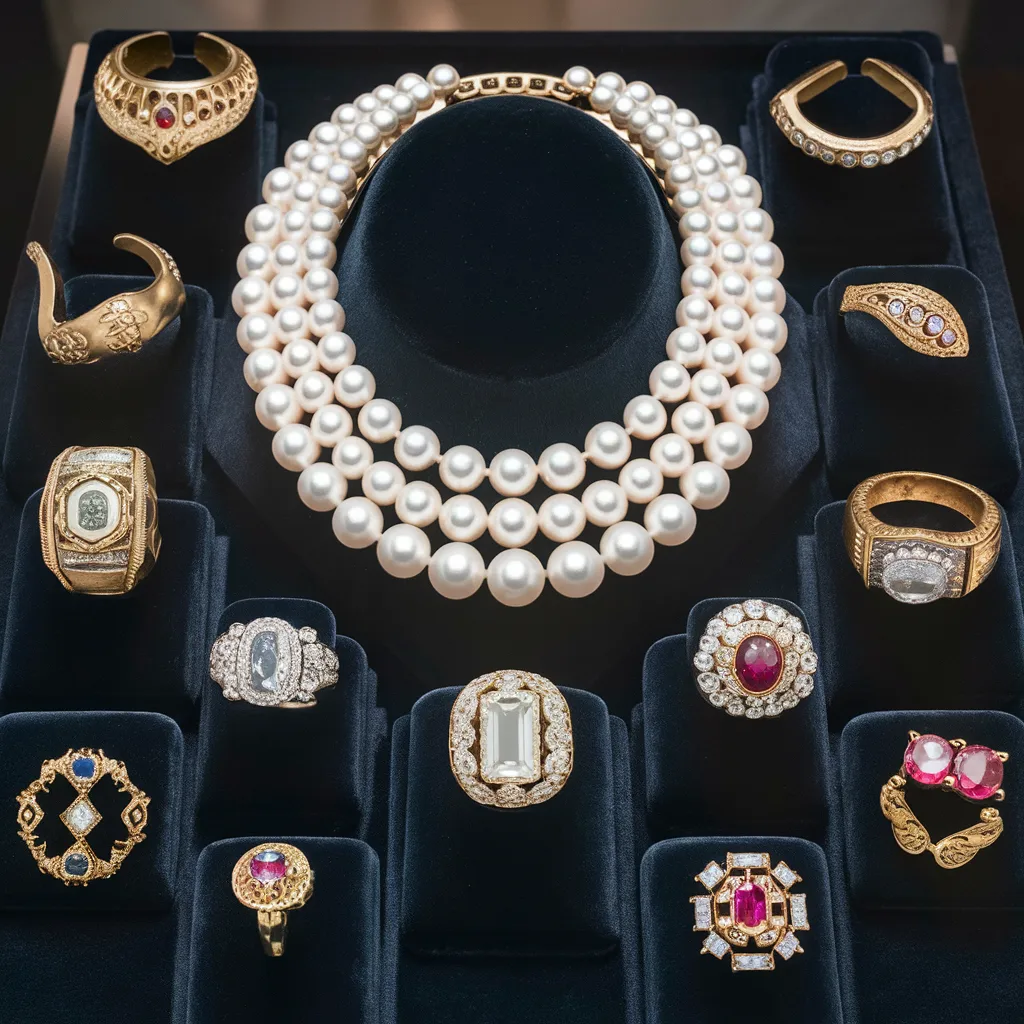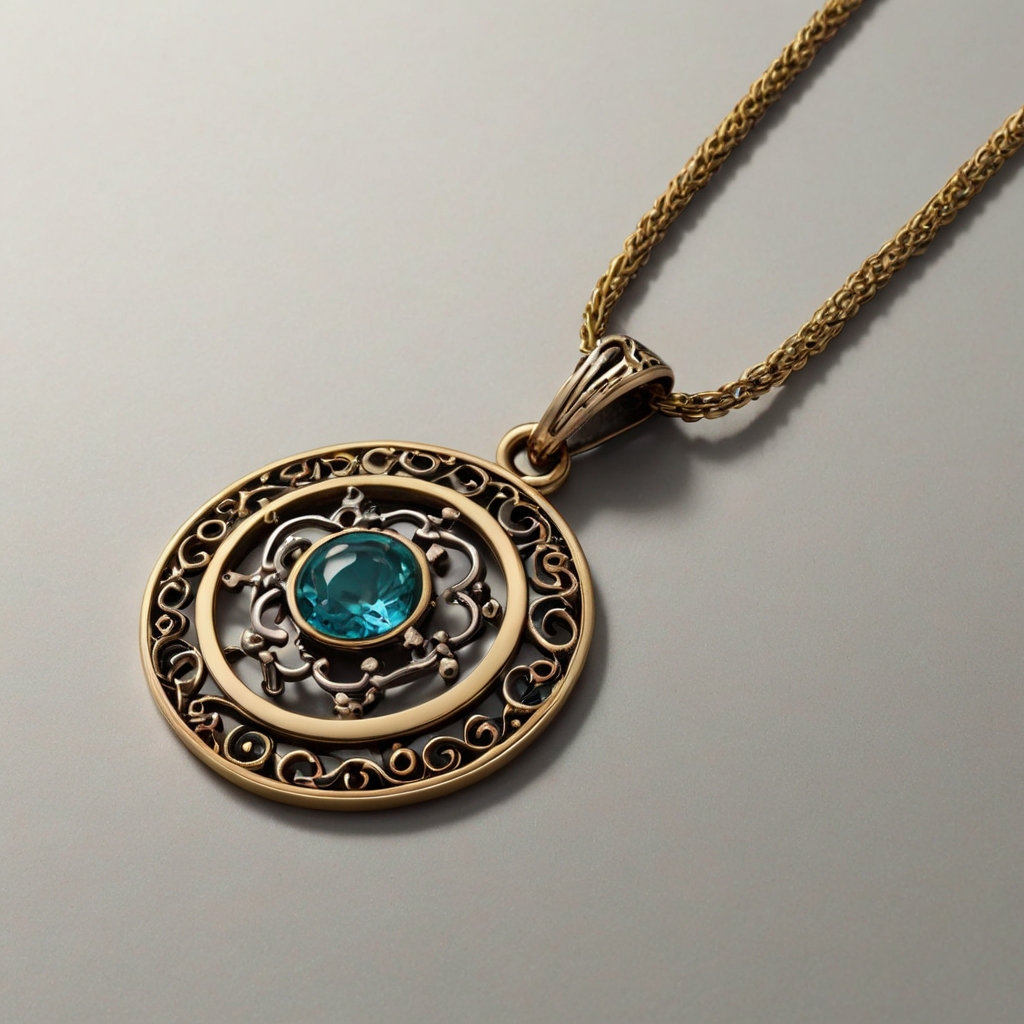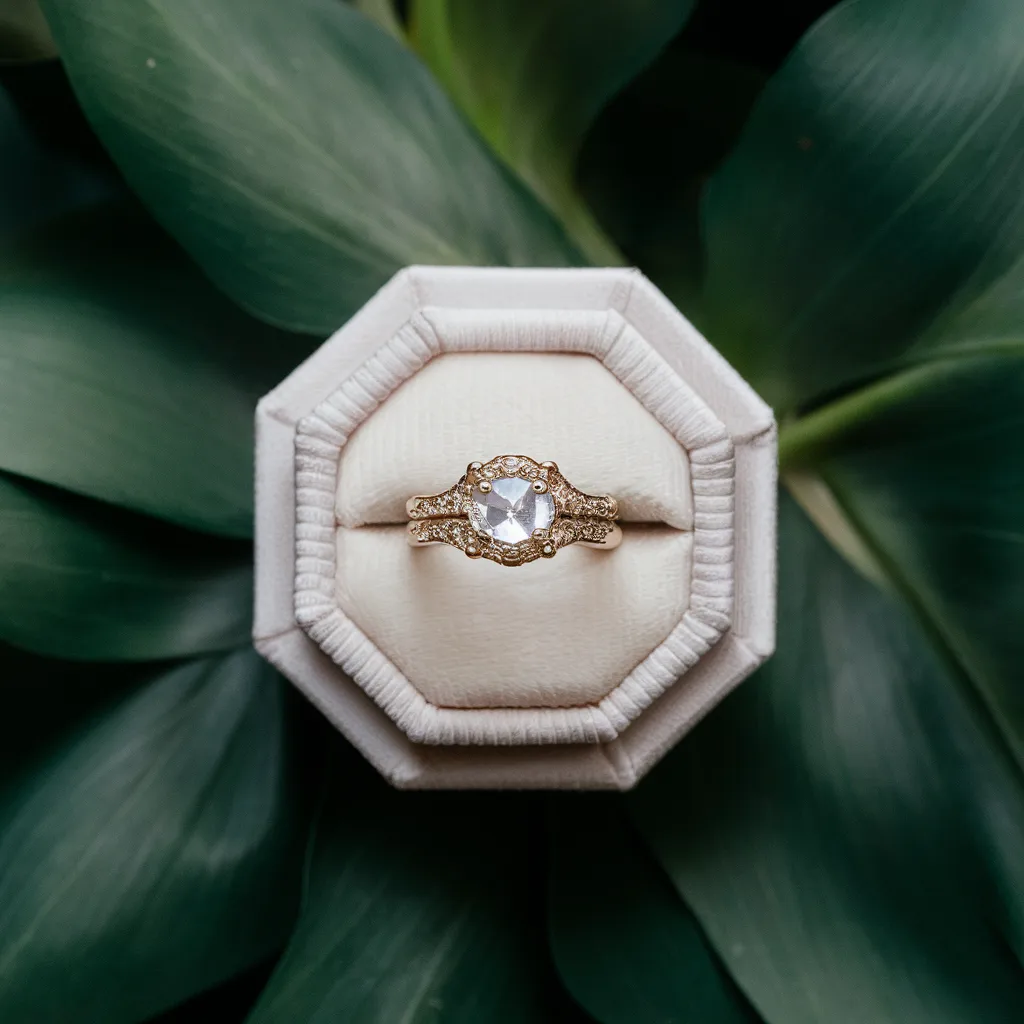
The Beauty and Significance of Rings: A Timeless Accessory
Rings are one of the most enduring and symbolic pieces of jewelry across cultures and eras. From ancient times to the modern day, rings have held significant meaning, symbolized various rites of passage, and served as markers of social status, commitment, and personal expression. This article delves into the multifaceted world of rings, exploring their history, cultural significance, and the various types of rings that one might encounter.
A Brief History of Rings
The history of rings dates back to ancient civilizations, where they were often used as symbols of power, authority, and religious significance. The ancient Egyptians, for instance, used rings made from materials such as bone, ivory, and leather, often adorned with precious stones and intricate carvings. These rings were not merely decorative; they served as talismans, amulets, and symbols of eternity.
In ancient Rome, rings became a symbol of social status and wealth. The Romans popularized the use of rings made from precious metals like gold and silver, and they introduced the concept of the signet ring. Signet rings, engraved with a unique family crest or emblem, were used to seal documents and authenticate the identity of the wearer.
During the medieval period, rings continued to play a significant role in societal rituals and personal adornment. The use of rings in religious and ceremonial contexts became more pronounced, with bishops and royalty often wearing rings as symbols of their divine right to rule.
Cultural Significance of Rings
Rings hold diverse meanings and significance across different cultures. They can represent love, commitment, power, status, and spirituality. Here are a few examples of how rings are perceived in various cultural contexts:
-
Western Culture: In Western societies, rings are most commonly associated with marriage and commitment. The engagement ring, often featuring a diamond or another precious gemstone, symbolizes a promise of marriage. The wedding ring, typically a simple gold or platinum band, represents the eternal bond between spouses.
-
Indian Culture: In Indian culture, rings are an integral part of traditional attire and are often worn to signify marital status. The "bichiya" (toe ring) is worn by married women, while the "mangalsutra" (a necklace with a pendant) often includes small rings as part of its design.
-
Chinese Culture: In Chinese tradition, rings have been used to symbolize wealth and social status. Jade rings, in particular, are highly valued for their beauty and believed to bring good luck and protection to the wearer.
-
Middle Eastern Culture: Rings in Middle Eastern cultures often carry religious significance. For example, in Islam, wearing a ring on the right hand is considered Sunnah (a practice recommended by the Prophet Muhammad). Rings made of silver, especially those with engravings of Quranic verses, are common.
Types of Rings
Rings come in various styles and serve different purposes. Below are some of the most popular types of rings:
-
Engagement Rings: These rings are traditionally given as a proposal of marriage. They often feature a central gemstone, usually a diamond, set on a band of precious metal. The design can range from simple solitaires to elaborate multi-stone settings.
-
Wedding Rings: Exchanged during the wedding ceremony, these rings symbolize the union of two individuals. They are typically more understated than engagement rings, often plain bands made of gold, platinum, or other durable metals.
-
Promise Rings: Promise rings signify a commitment between two people. They can be given for various reasons, including pre-engagement, chastity, or friendship. The designs are usually simpler than engagement rings but still hold significant sentimental value.
-
Eternity Rings: These rings are often given to mark significant milestones in a relationship, such as an anniversary. They are characterized by a continuous line of identical gemstones around the band, symbolizing everlasting love.
-
Signet Rings: Historically used to seal documents, signet rings feature a flat bezel engraved with a unique emblem, crest, or initials. They are often passed down through generations as family heirlooms.
-
Fashion Rings: These rings are worn purely for aesthetic reasons and can feature a wide range of designs, materials, and gemstones. Fashion rings allow for personal expression and can be worn on any finger.
-
Birthstone Rings: Featuring a gemstone associated with the wearer’s birth month, birthstone rings are popular as personalized gifts. Each birthstone is believed to carry specific meanings and properties.
The Value and Purchase of Rings
The value of a ring is determined by several factors, including the materials used, the craftsmanship, and the rarity of the gemstones. When purchasing a ring, especially one with significant sentimental value like an engagement or wedding ring, it is essential to consider these factors:
-
Material: The metal used for the band plays a crucial role in the ring's overall value and durability. Common metals include gold, platinum, silver, and titanium. Each metal has its unique properties, with gold and platinum being the most sought-after for their luster and longevity.
-
Gemstones: The type, size, and quality of the gemstone significantly affect the ring's value. Diamonds are the most popular choice for engagement rings due to their brilliance and hardness. However, other gemstones like sapphires, emeralds, and rubies are also prized for their beauty and rarity.
-
Craftsmanship: The skill and artistry involved in creating the ring contribute to its overall value. Intricate designs, hand-engraving, and custom settings are markers of high-quality craftsmanship.
-
Certification: When purchasing rings with precious gemstones, it is advisable to seek certification from reputable organizations like the Gemological Institute of America (GIA). Certification ensures that the gemstones are authentic and provides details about their quality and characteristics.
Buying Rings Online
In the digital age, purchasing rings online has become increasingly popular due to the convenience and wider selection available. When buying a ring online, there are several key considerations to keep in mind:
-
Reputable Sellers: Ensure that you are buying from a reputable online retailer with positive reviews and a good track record. Look for sellers that offer detailed descriptions and high-quality images of their products.
-
Return Policy: Check the return policy before making a purchase. A flexible return policy allows you to return or exchange the ring if it does not meet your expectations.
-
Sizing: Getting the right size is crucial for comfort and wearability. Many online retailers provide sizing guides and tools to help you determine the correct ring size.
-
Certification and Appraisal: Ensure that any rings with precious gemstones come with proper certification and appraisal documents. This provides assurance of the ring's value and authenticity.
-
Customer Service: Good customer service is essential for addressing any questions or concerns you may have during the purchasing process. Look for retailers that offer responsive and helpful customer support.
Conclusion
Rings are more than just pieces of jewelry; they are symbols of love, commitment, tradition, and personal expression. Their rich history and cultural significance make them an enduring accessory that holds deep meaning for individuals across the globe. Whether you are purchasing a ring to mark a special occasion or simply to enjoy its beauty, understanding the various types, their significance, and the factors that contribute to their value can help you make an informed and meaningful choice.



